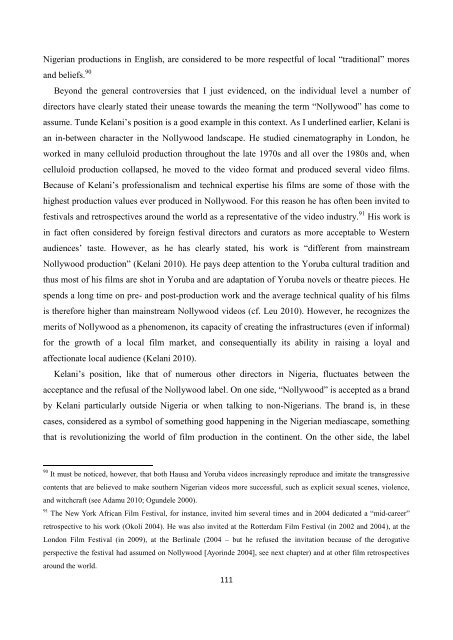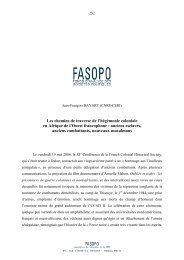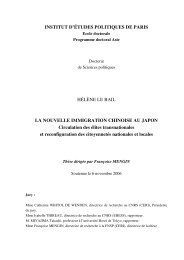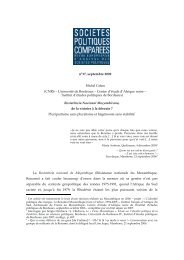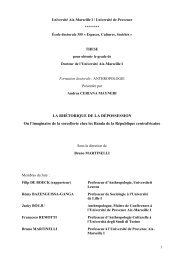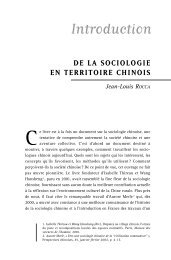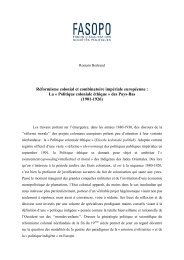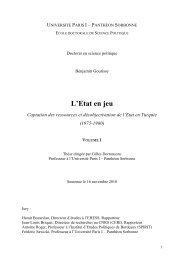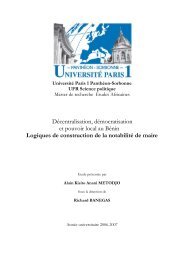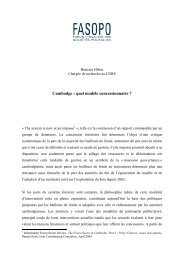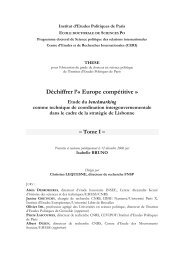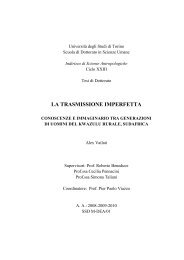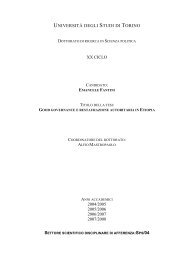Create successful ePaper yourself
Turn your PDF publications into a flip-book with our unique Google optimized e-Paper software.
Nigerian productions in English, are considered to be more respectful of local “traditional” moresand beliefs. 90Beyond the general controversies that I just evidenced, on the individual level a number ofdirectors have clearly stated their unease towards the meaning the term “Nollywood” has come toassume. Tunde Kelani’s position is a good example in this context. As I underlined earlier, Kelani isan in-between character in the Nollywood landscape. He studied cinematography in London, heworked in many celluloid production throughout the late 1970s and all over the 1980s and, whencelluloid production collapsed, he moved to the video format and produced several video films.Because of Kelani’s professionalism and technical expertise his films are some of those with thehighest production values ever produced in Nollywood. For this reason he has often been invited tofestivals and retrospectives around the world as a representative of the video industry. 91 His work isin fact often considered by foreign festival directors and curators as more acceptable to Westernaudiences’ taste. However, as he has clearly stated, his work is “different from mainstreamNollywood production” (Kelani 2010). He pays deep attention to the Yoruba cultural tradition andthus most of his films are shot in Yoruba and are adaptation of Yoruba novels or theatre pieces. Hespends a long time on pre- and post-production work and the average technical quality of his filmsis therefore higher than mainstream Nollywood videos (cf. Leu 2010). However, he recognizes themerits of Nollywood as a phenomenon, its capacity of creating the infrastructures (even if informal)for the growth of a local film market, and consequentially its ability in raising a loyal andaffectionate local audience (Kelani 2010).Kelani’s position, like that of numerous other directors in Nigeria, fluctuates between theacceptance and the refusal of the Nollywood label. On one side, “Nollywood” is accepted as a brandby Kelani particularly outside Nigeria or when talking to non-Nigerians. The brand is, in thesecases, considered as a symbol of something good happening in the Nigerian mediascape, somethingthat is revolutionizing the world of film production in the continent. On the other side, the label90 It must be noticed, however, that both Hausa and Yoruba videos increasingly reproduce and imitate the transgressivecontents that are believed to make southern Nigerian videos more successful, such as explicit sexual scenes, violence,and witchcraft (see Adamu 2010; Ogundele 2000).91 The New York African Film Festival, for instance, invited him several times and in 2004 dedicated a “mid-career”retrospective to his work (Okoli 2004). He was also invited at the Rotterdam Film Festival (in 2002 and 2004), at theLondon Film Festival (in 2009), at the Berlinale (2004 – but he refused the invitation because of the derogativeperspective the festival had assumed on Nollywood [Ayorinde 2004], see next chapter) and at other film retrospectivesaround the world.111


